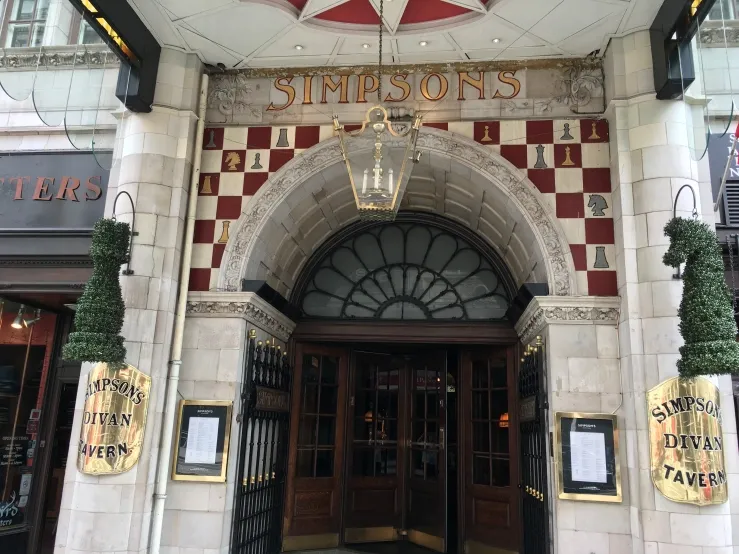Decorations and Democracy
At the end of hostilities in Europe, Edgar Whitehead received an invitation to bring fifty Rhodesians to the next investiture at Buckingham Palace to receive decorations from the King.

There were far more than fifty in Britain who had won awards. Edgar selected those of outstanding merit, making sure that a fair cross section of all ranks and services were represented. One or two M.P's (Members of Parliament), then in London, tried to pressurize Edgar into ensuring a special quota of Afrikaans speaking Rhodesians and to consider other political aspects, but he replied he could only consider military aspects, the only special priority was for the wounded.
The great day came. The fifty reported to Rhodesia House at eleven o'clock so they could see everyone was properly dressed. Baggott had arranged with the manager of Simpsons-in-the-Strand to give them lunch there to keep them all together till the bus arrived to drive them to the the Palace.
There was an amazing variety of ranks and uniforms varying from Group Captain in full dress to young privates in battledress. Simpsons arranged the lunch upstairs and the manager was at the door to meet them. The much decorated Group Captain Charles Green in all his finery started to walk into the downstairs dining room when a twenty-year-old private called out, "Charles, you bloody fool, the lunch is upstairs."
The manager of Simpsons turned to Edgar and said, "Sir, I think Rhodesia must be a democracy."
The historical novel Whitewashed Jacarandas and its sequel Full of Possibilities are both available on Amazon as paperbacks and eBooks.
These books are inspired by Diana's family's experiences in small town Southern Rhodesia after WWII.
Dr. Sunny Rubenstein and his Gentile wife, Mavourneen, along with various town characters lay bare the racial arrogance of the times, paternalistic idealism, Zionist fervor and anti-Semitism, the proper place of a wife, modernization versus hard-won ways of doing things, and treatment of endemic disease versus investment in public health. It's a roller coaster read.
- References:
- Sir Edgar Whitehead's Unpublished Memoirs, Rhodes House, Bodleian Library, Oxford University, by permission.
- Photo Credit: Simpsons-in-the-Strand https://theoccasionalinformationist.com/2018/07/19/simpsons-in-the-strand/

